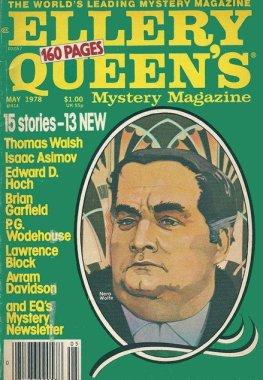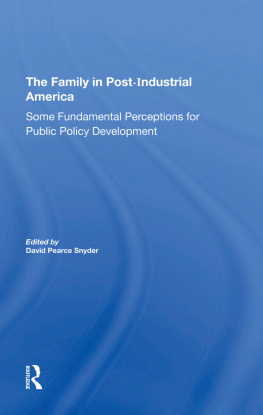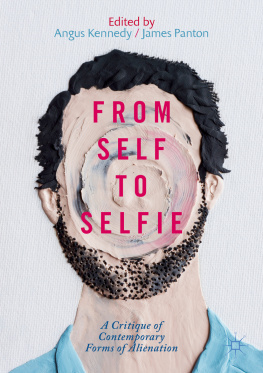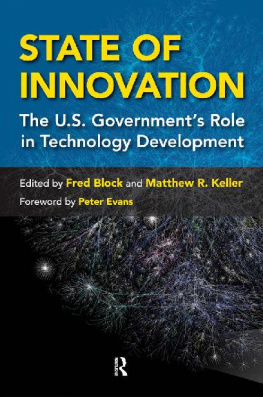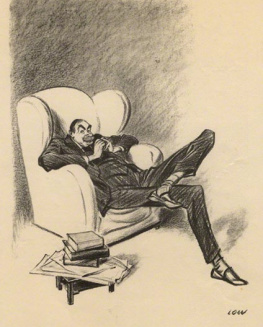Fred Block - Postindustrial possibilities: a critique of economic discourse
Here you can read online Fred Block - Postindustrial possibilities: a critique of economic discourse full text of the book (entire story) in english for free. Download pdf and epub, get meaning, cover and reviews about this ebook. publisher: California Princeton Fulfillment Services, genre: Politics. Description of the work, (preface) as well as reviews are available. Best literature library LitArk.com created for fans of good reading and offers a wide selection of genres:
Romance novel
Science fiction
Adventure
Detective
Science
History
Home and family
Prose
Art
Politics
Computer
Non-fiction
Religion
Business
Children
Humor
Choose a favorite category and find really read worthwhile books. Enjoy immersion in the world of imagination, feel the emotions of the characters or learn something new for yourself, make an fascinating discovery.

- Book:Postindustrial possibilities: a critique of economic discourse
- Author:
- Publisher:California Princeton Fulfillment Services
- Genre:
- Rating:3 / 5
- Favourites:Add to favourites
- Your mark:
- 60
- 1
- 2
- 3
- 4
- 5
Postindustrial possibilities: a critique of economic discourse: summary, description and annotation
We offer to read an annotation, description, summary or preface (depends on what the author of the book "Postindustrial possibilities: a critique of economic discourse" wrote himself). If you haven't found the necessary information about the book — write in the comments, we will try to find it.
Fred Block: author's other books
Who wrote Postindustrial possibilities: a critique of economic discourse? Find out the surname, the name of the author of the book and a list of all author's works by series.
Postindustrial possibilities: a critique of economic discourse — read online for free the complete book (whole text) full work
Below is the text of the book, divided by pages. System saving the place of the last page read, allows you to conveniently read the book "Postindustrial possibilities: a critique of economic discourse" online for free, without having to search again every time where you left off. Put a bookmark, and you can go to the page where you finished reading at any time.
Font size:
Interval:
Bookmark:
POSTINDUSTRIAL POSSIBILITIES


For Miriam and Judith
Preface
This small book has three large goals. The first is to restate and revitalize postindustrial theory. The second is to demonstrate the power of economic sociology as a method for understanding contemporary economies. The third is to offer an alternative framework for thinking about economic policy and social choice in developed capitalist societies. Clearly, any of these tasks alone is far too ambitious for a single volume. Moreover, the topics are so large that the substantive chapters only scratch the surface of the data and scholarship relevant to my argument, and new articles and books that should be incorporated into the analysis are appearing almost daily. Nevertheless, if it encourages others to take up these issues in a more sustained and systematic fashion, I think I am justified in publishing an essayliterally, an attemptthat is provisional and incomplete. Without this kind of intellectual chutzpah, there is a real danger that serious scholarship will confine itself to narrow questions that lend themselves to mastery by a single scholar, and that the great issues of our time will go unstudied.
I have incurred numerous debts in the preparation of this volume. The German Marshall Fund of the United States provided me with support during the 1986-87 academic year; without that year devoted to research and writing, this volume could not have been written. I am also indebted to the University of Pennsylvania's Program for Assessing and Revitalizing the Social Sciences for research support over several summers. Even more important, the arguments of this book reflect what I have learned from my colleagues in seminars sponsored by this program.
A number of individuals provided references or data that were critical; these include Paul Adler, Ann Miller, Patricia Roos, and Michael Weinstein. Many people read chapters or the entire manuscript and provided valuable comments; these include Daniel Bell, Nancy Folbre, Roger Friedland, Jerry Jacobs, Henrika Kuklick, Frances Fox Piven, Samuel Preston, Carmen Sirianni, Judy Stacey, Ann Swidler, and Robert Wood. The manuscript has also benefited greatly from the editorial work of Peter Dreyer and Naomi Schneider. As they have for the past fifteen years, five friends have been particularly important in the development of my thinking; they are Larry Hirschhorn, Karl Klare, Magali Sarfatti Larson, David Plotke, and Peggy Somers. I cannot express the depth of my gratitude to them.
My debts to my family are also formidable. I am deeply grateful to my mother, Jean Libman Block, and my father, Frederick H. Block, for their love and support. I am reluctant to engage in the rhetorical excesses that would be necessary to describe my debt to my wife, Carole Joffe. Suffice it to say that her love and wisdom have immeasurably enriched my work. The book is dedicated to my daughters, Miriam and Judith Joffe-Block, in the age-old hope that they will inherit a better world. This dedication is hardly adequate recompense for what they have given to me.
Chapter One
The Postindustrial Context
This is a strange period in the history of the United States because people lack a shared understanding of the kind of society in which they live. For generations, the United States was understood as an industrial society, but that definition of reality is no longer compelling. Yet no convincing alternative has emerged in its absence.
This confusion and uncertainty is reflected in both commonsense views and social theory. Contemporary social theorists tell us remarkably little about the kind of historical era in which we live.1 Social theorists have become preoccupied with questions of metatheory; much theoretical debate centers on defining the proper scope and ambition of social theory and on determining the kind of theory that should be created. Recent years have seen relatively few efforts to define the nature of contemporary societies and to delineate their major dynamics. It is almost as though such an effort is now seen as an old-fashioned exercise, an anachronistic return to the lofty ambitions of nineteenth-century theorists.2
1. More accurately, they tell us little directly; their silence on the classical issue of defining the nature of the society is itself deeply revealing. There are exceptions to this prevailing silence, but an examination of the essays in a recent volume designed to reflect the state of the debate in social theory (Anthony Giddens and Jonathan Turner, eds., Social Theory Today [Stanford: Stanford University Press, 1987]) provides strong support for this conclusion. Important partial exceptions include the recent multivolume work by Roberto Mangabeira Unger, Politics: A Work in Constructive Social Theory (Cambridge: Cambridge University Press, 1987), and Anthony Giddens's own multivolume study, A Con temporary Critique of Historical Materialism (Berkeley: University of California Press, 1981, 1987). The second volume is entitled The Nation-State and Violence.
This silence of contemporary theorists has real consequences, because individuals cannot do without some kind of conception of the type of society in which they live. In modern societies, social theory plays an indispensable role in providing us with a roadmap to our social environment. While there are complex mediations between high social theory and everyday "common sense," the two are connected in important ways.3
In those periods when social theory fails to define the nature of our society, other ideas tend to fill the void of popular understanding. As Keynes said of economics, those who profess not to be influenced by any theory are usually enthralled by the ideas of some long-forgotten scribbler. In our own period, it is economic ideas and, ironically, pre-Keynesian economic ideas in particularthat have filled the vacuum left by the silences of contemporary social theory. The remarkable revival during the 1980s of classical freemarket economics has served to fill people's need for some kind of social understanding to guide their day-to-day actions.4
The relative silence of social theory is rooted in events of the 1960s and 1970s that critically weakened the previously dominant theories of post-World War II American social science. Structuralfunctionalism in sociology, pluralism in political science, and liberal Keynesianism in economics shared in common an evolutionary triumphalism that saw American society as having evolved new institutional arrangements that provided solutions to such historic problems of industrialism as class conflict, economic crises, and exploitation. All three approaches proclaimed the arrival of a new stage in history in which enlightened state action and a spirit of consensus would make possible the gradual solution of the remaining social problems. All three of these approaches were unapologetically liberal in their political and social outlook.
2. This is, in fact, the position of many who have been influenced by poststructuralism. They see any attempt to create a unified theory of society as intellectually indefensible and as potentially coercive.
3. The classical source of the idea that social theory plays a critical role in shaping popular perceptions of reality is Gramsci. See Antonio Gramsci, Selec tions from the Prison Notebooks, vol. 1 (New York: International Publishers, i97i).
4. Fundamentalist religious ideas have also filled this space for many. There are, of course, affinities between free-market ideas and the Christianity of the Gospels. See Karl Polanyi, The Great Transformation (1944; reprint, Boston: Beacon Press, 1957), 249-58B.
Font size:
Interval:
Bookmark:
Similar books «Postindustrial possibilities: a critique of economic discourse»
Look at similar books to Postindustrial possibilities: a critique of economic discourse. We have selected literature similar in name and meaning in the hope of providing readers with more options to find new, interesting, not yet read works.
Discussion, reviews of the book Postindustrial possibilities: a critique of economic discourse and just readers' own opinions. Leave your comments, write what you think about the work, its meaning or the main characters. Specify what exactly you liked and what you didn't like, and why you think so.

